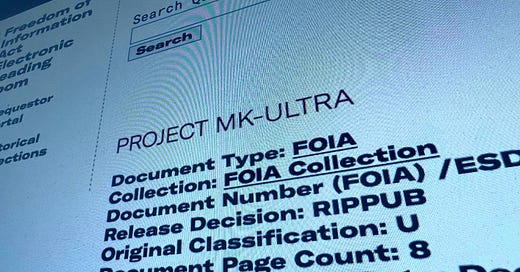First Human Receives Brain Chip Implant from Musk's 'Neuralink,' Funded by Elite Investor Tied to CIA Venture Capital Arm 'In-Q-Tel'
Musk’s many ties to the CIA raise questions about who wants access to Americans’ thoughts.
On Sunday, the brain-chip startup Neuralink marked a significant milestone as it successfully implanted its radical new device that connects human thoughts to external devices into its first human patient.
Follow Jon Fleetwood on Instagram @realjonfleetwood / Twitter @JonMFleetwood
The news came from the company’s CEO, Elon Musk.
“Initial results show promising neuron spike detection,” Musk shared in a post on the social media platform X (formerly Twitter).
Neurons are cells within the brain that utilize electrical and chemical signals to transmit information throughout the brain and body.
The detection of neuron spikes of Neuralink’s technology signals the device’s ability to interact with the patient’s brain activity.
Last year, the U.S. Food and Drug Administration (FDA) granted clearance to Neuralink to commence its first human trial.
Safety Concerns
The FDA had previously rejected Neuralink’s request for a human trial, pointing to growing employee concern that the company is rushing experiments, causing additional suffering and deaths of pigs, sheep, and monkeys.
The FDA referenced other safety issues: “The agency’s major safety concerns involved the device’s lithium battery; the potential for the implant’s tiny wires to migrate to other areas of the brain; and questions over whether and how the device can be removed without damaging brain tissue,” according to Reuters.
U.S. Representatives Earl Francis Blumenauer (D-OR) and Adam Schiff (D-CA) drafted a letter to the Department of Agriculture (USDA) inquiring how Neuralink conducted its experiments.
“At the time of this letter, serious allegations have been leveled against Elon Musk’s company Neuralink,” the congressmen’s letter reads.
“These complaints include graphic descriptions of botched experiments and unnecessary animal suffering and death, reportedly as a result of pressure from Mr. Musk to irresponsibly accelerate development of the company’s products at the expense of animal safety.”
Moreover, the ‘Physicians Committee for Responsible Medicine’ (PCRM)—an anti-animal cruelty nonprofit—had filed a federal complaint with the USDA regarding the treatment of monkeys at the University of California (UC), Davis in connection with Neuralink’s experiments.
However, in September, Neuralink announced approval for participant recruitment for the human trial, further advancing its mission to revolutionize the field of neurotechnology.
The trial utilizes a robotic system to precisely implant a brain-computer interface (BCI) device into a specific brain region responsible for controlling movement intentions.
Neuralink’s primary objective involves connecting the chip to an individual’s thoughts.
Follow Jon Fleetwood on Instagram @realjonfleetwood / Twitter @JonMFleetwood
CIA Mind Control?
During the 1950s and early ‘60s, the U.S. Central Intelligence Agency (CIA) conducted ‘Project MKUltra,’ a covert operation run by the Office of Scientific Intelligence that aimed at developing mind control and interrogation techniques.
This secretive program utilized drugs like LSD and various other methods in its pursuit.
MKUltra encompassed numerous subprojects and research endeavors, often conducted within prisons, hospitals, and academic institutions across the United States.
However, its methods were highly controversial, involving “disturbing” and “ethically indefensible” experimentation on human subjects that resulted in lasting emotional and psychological harm.
Allegedly part of the Cold War-era agenda to counter perceived communist threats and gain strategic advantages, MKUltra’s activities have sparked enduring public interest and concern regarding its scope and impact.
Neuralink’s start relied on a $280 million Series D funding round offered by tech investor and PayPal co-founder Peter Thiel’s venture capital firm Founders Fund.
Musk’s brain chip company later raised an additional $43 million from Thiel’s Founders Fund, bringing the total from $280 million to $323 million.
Thiel’s Founders Fund has contributed to Musk’s other projects, including SpaceX, and The Boring Company.
Thiel’s Palantir—a software company providing data analysis and integration solutions for the CIA and the U.S. Army—received startup funding from In-Q-Tel, a CIA-funded venture capital firm.
In-Q-Tel relies on U.S. taxpayer money for its funding projects.
Follow Jon Fleetwood on Instagram @realjonfleetwood / Twitter @JonMFleetwood
But Musk himself has ties to In-Q-Tel.
Since its inception in 2002, Musk’s SpaceX has maintained close ties with the national security apparatus, particularly through figures like Mike Griffin, who served as president and COO of In-Q-Tel.
Griffin’s partnership with Musk began early, as they sought to acquire discounted intercontinental ballistic missiles in 2002 to kickstart Musk’s venture.
Although that endeavor failed, it solidified their collaboration.
Griffin, later heading NASA, played a pivotal role in securing SpaceX’s breakthrough contract in 2006, worth $396 million, despite the company’s lack of prior rocket launches.
Subsequently, SpaceX faced financial struggles, but it was rescued by a significant $1.6 billion NASA contract in 2008 for commercial cargo services.
This early support from government entities was instrumental in SpaceX’s development as a technology provider.
Musk’s many ties to the CIA’s In-Q-Tel raise questions about who wants access to Americans’ thoughts.
These ties have led some to believe Musk is a “massive Pentagon contractor,” or what some would call a “Fed.”
Follow Jon Fleetwood on Instagram @realjonfleetwood / Twitter @JonMFleetwood





Elon Musk’s Neuralink, a medical device company, is under federal investigation for potential animal-welfare violations amid internal staff complaints that its animal testing is being rushed, causing needless suffering and deaths, according to documents
The investigation has come at a time of growing employee dissent about Neuralink’s animal testing, including complaints that pressure from Musk to accelerate development has resulted in botched experiments, according to a Reuters review of dozens of Neuralink documents and interviews with more than 20 current and former employees. Such failed tests have had to be repeated, increasing the number of animals being tested and killed, the employees say. The company documents include previously unreported messages, audio recordings, emails, presentations and reports.
Musk and other Neuralink executives did not respond to requests for comment.
Dec 2022
So obviously, that investigation meant absolutely nothing. Just like with the Pfizer trials. If the animals die let’s just move onto humans it’s OK we’ve got work to do.